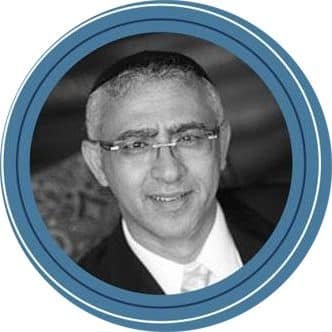 In an article titled «Is Thanksgiving Kosher?» rabbi Michael Broyde from Atlanta GA, examined the Halachic positions of three Rabbanim on this issue: 1. Rabbi Yitzhak Hutner, who ruled that it is forbidden for Jews to participate in or celebrate this Gentile holiday in any ways. 2. Rabbi Yosef Soloveitchik, who considers Thanksgiving a secular holiday and allows its celebration (that is, eating turkey), and 3. Rabbi Moshe Feinstein, who allows the consumption of turkey, but prohibits any other type of religious celebration. Many Orthodox Jews celebrate this day and others do not. And it should be clarified that this is NOT a contentious issue that divides the Orthodox Jewish community in America or something like that. I think everyone enjoys Thanksgiving in one way or another in this country….
In an article titled «Is Thanksgiving Kosher?» rabbi Michael Broyde from Atlanta GA, examined the Halachic positions of three Rabbanim on this issue: 1. Rabbi Yitzhak Hutner, who ruled that it is forbidden for Jews to participate in or celebrate this Gentile holiday in any ways. 2. Rabbi Yosef Soloveitchik, who considers Thanksgiving a secular holiday and allows its celebration (that is, eating turkey), and 3. Rabbi Moshe Feinstein, who allows the consumption of turkey, but prohibits any other type of religious celebration. Many Orthodox Jews celebrate this day and others do not. And it should be clarified that this is NOT a contentious issue that divides the Orthodox Jewish community in America or something like that. I think everyone enjoys Thanksgiving in one way or another in this country….I would like to share with the reader a little more information regarding the history of Thanksgiving.
1. A SECULAR OR A RELIGIOUS CELEBRATION?
In its origins, Thanksgiving is definitely not a secular holiday, like the 4th of July. In 1789, President George Washington issued a decree saying that Thursday, November 26 of that year, “be consecrated by the people of these States to the service of that great and glorious Being [God YB] who is the beneficial author of all good things. what it was, what it is and what it will be, so that we can all join together to give Him our sincere and humble gratitude for His great care and protection towards the people of this country, prior to their becoming a nation. » The original reason for Thanksgiving is to thank GOD, for His generosity and His favors. Thanksgiving should be understood as “A Day of Thanksgiving to God” (It should be noted that George Washington, and the founders of this country were Protestants and did not invoke Yeshu, as Catholics would do, but God, i.e., the God of the Hebrew Bible).
2. THE FIRST JEWS IN THE USA
Sephardic Jews were the first to arrive to America in 1654. In 1789 Rabbi Gershom Mendes Seixas from the Sephardic Sheerith Israel Congregation of New York, the first rabbi born in the United States, joined in the Thanksgiving celebration. Rabbi Mendes Seixas, who was very close to Washington, wrote the following: “We Jews have been declared by this government as citizens with the same rights as everyone else [something that at that time did NOT exist anywhere else in the world. YB]. We do not have enough words to thank the God of our fathers for all the benefits that result from this good government … and we cannot sufficiently express our appreciation for His benevolent generosity, in the good that He does for the inhabitants of this land. ». For Rabbi Mendes Seixas (1745-1816) Thanksgiving was the perfect occasion to thank HaShem not only for His permanent protection, but also for the freedoms and rights that Jews enjoyed in the United States. The introduction of special Tefilot for the Thanksgiving celebration, with Psalms and prayers asking HaShem to protect the president of the Unite States and the officials of the American government continued for a long time, especially in this first Synagogue that exists to this day. In this link you can find the Jewish Religious Service for Thanksgiving (named יום תודה ) composed by Rabbi David De Sola Pool in 1945.
3. NEW INFORMATION
Recently, new historical material has been discovered showing that Thanksgiving has impressive Jewish roots. In his book «Making Haste From Babylon» the historian Nick Bunker reveals an element of particular importance. The pilgrims of the iconic Mayflower ship, those first pioneers who came to the United States fleeing persecution in England, brought with them their main source of religious inspiration: the Bible. It is known that a particular edition of the Bible, published in 1618, was in the possession of William Bradford, who later served as governor of the American colony «Plymouth.» And this edition of the Bible was supplemented with handwritten annotations by a Puritan scholar named Henry Ainsworth (1571-1622). Shortly after reaching land in November 1620, Bradford invited the newcomers to thank God after the hazardous journey that brought them to America, and on that occasion they recited Psalm 107 (which is the Mizmor that we recite on Pesach !).
Interestingly, in his annotations to verse 32 of that Psalm he says: “From this Psalm, and from this verse the Hebrews have the following law: ‘Four individuals should thank (God): the sick, when they are healed; the prisoner when freed from his yoke; those who go down to the sea [sail], when they arrive (to land); and travelers [walking through deserted areas] when they arrive on inhabited land. And they must do this thanks in front of ten men, and two of them must be Wise. And the way to thank and bless is like this: the person stands up in public and blesses the Lord saying: [Blessed are You, HaShem, our God, eternal King, who generously grants [His] good favors, even with those who sin, etc. Maimonides, in Mishne Torah, Trat. of blessings, ch. 10, sect. 8.’ “ If this text seems familiar to Jews versed in Jewish law, it is because Ainsworth «copied» in English a Halacha from the book of Maimonides, Mishne Tora (Hilchot Berachot, 10: 8) that prescribes the four circumstances in which they are due reciting the Beracha «ha-gomel», the blessing of «gratitude» after having emerged unscathed from a dangerous and risky situation. These four instances are precisely defined in Psalm 107. Non Jews quoting the Hebrew Bible is common, but non-Jews quoting Rabbinical Law as a source for a gentile practice is not. Bradford compared the arrival of the pilgrims to America to the Jews who crossed the desert and arrived in Israel. «Travelers who walk [through the desert], and arrive [safely] on the inhabited earth», one of the four scenarios that require the prayer of gratitude or “Thanksgiving». Bunker argues that the first prayer that North American pilgrims recited upon arrival in the New World had its origins in this distinctly Jewish practice. And he considers that it was this religious service that gave its origin to the original “Thanksgiving.»
Read the complete article on this last subject here.
 Rab Yosef Bitton
Rab Yosef Bitton
Fuente: halaja.org
 eSefarad Noticias del Mundo Sefaradi
eSefarad Noticias del Mundo Sefaradi

